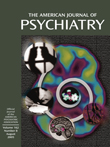Pharmacotherapy and Pharmacogenetics of Nicotine Dependence
Abstract
The authors review recent advances in the pharmacotherapy and pharmacogenetics of nicotine dependence. Despite the negative health consequences of smoking, approximately 23% of adults in the United States are daily tobacco smokers and approximately 13% are nicotine dependent. Data for development of new medications for nicotine dependence are likely to come from animal models of the reinforcing value of nicotine, studies to identify proteins in transgenic rodents, and pharmacological studies of nicotine withdrawal. The initial pharmacogenetic studies of pharmacotherapies approved by the United States Food and Drug Administration for treatment of nicotine dependence—nicotine replacement (nicotine gum, nicotine nasal spray, and transdermal nicotine) and bupropion—have identified candidate alleles at the dopamine D2 receptor gene and μ opioid receptor gene that may predict therapeutic response. Because no one medication is likely to be safe and efficacious for a majority of persons with nicotine dependence, it will be useful to develop genetics-based methods and other tools to predict therapeutic response in subgroups of nicotine-dependent persons.



